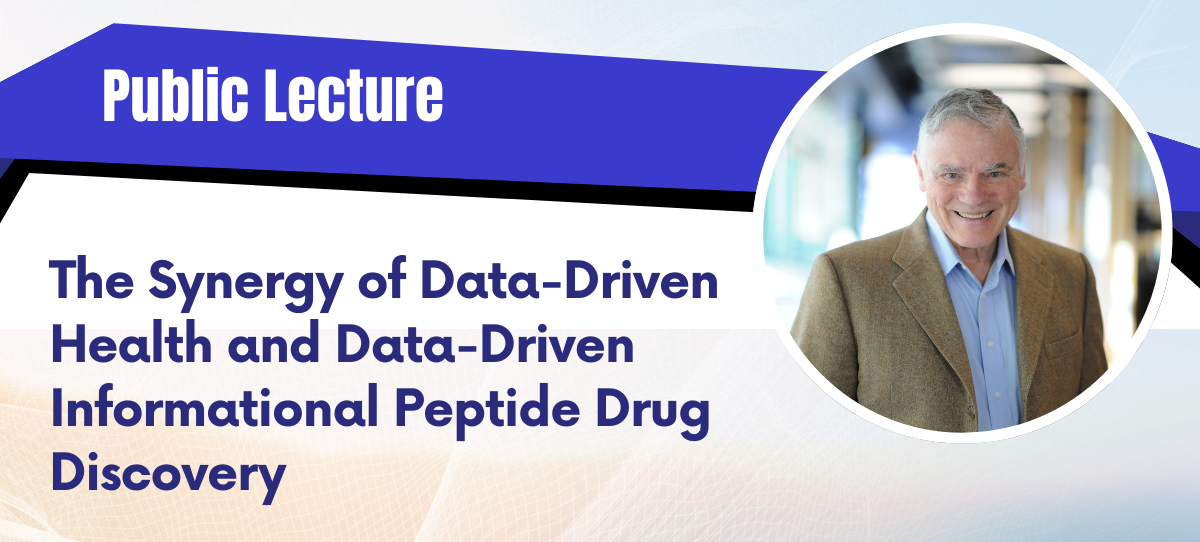
Data-driven health employs a genome and longitudinal phenome analysis of each of many individuals to decipher their individual biological complexities and turn these insights into actionable possibilities to optimize wellness and healthy aging, to avoid disease and to gain causal insights into wellness and disease. Two major factors influence each individual’s health trajectory—their behavior and their environment and these influences are followed longitudinal phenomic measurements. The actionable possibilities, so derived, will be processed through a knowledge graph to provide a proper education metadata for a transformer. Statistical analyses and machine learning analyses of individual genome and phenome data also lead to the discovery of many new possible drug candidates for wellness and prevention. For these targets, we plan to employ peptide drug discovery techniques that will utilize large-scale DNA synthesis to generate millions to billions of peptide genes and then use the tools to cell and molecular biology to interrogate these drugs individually through phenotypic and targeted selection procedures. This approach will also map the peptide drugs’ individual transcriptional activities by single-cell analyses in 100 or more human cell lines and organelles and process each through a knowledge graph to generate the metadata used to instruct a transformer to model the optimization of drug use in individuals. These drugs will relate both to the optimization of wellness and aging and early detection of disease transitions and their reversal—as relates to both individual behaviors and the environmental influences. I will discuss these two AI-driven approaches to healthcare, data-driven health and informational peptide drug discovery and their AI-driven synergies in moving to an N=1 healthcare.
Dr. Lee Hood is a pioneering scientist and entrepreneur known for his contributions to genomics, systems biology, and personalized medicine. He is the co-founder of the Institute for Systems Biology and the Founding CEO of Phenome Health, and has played a key role in the development of the automated DNA sequencer, a tool essential for the Human Genome Project. He advocates for P4 medicine (predictive, personalized, preventive, and participatory) and is driving efforts to develop a comprehensive understanding of the human phenome.

 Back
Back